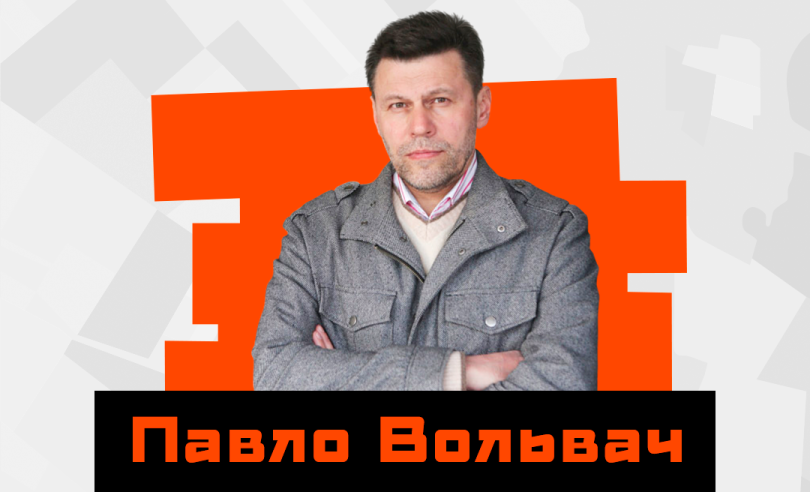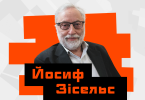ONCE UPON A TIME IN NEW YORK
New York is a fascinating little word. You might hear someone say, „I’ve been there once,“ followed by, „They have pretty good chebureki there, oh-ho…“ It’s worth noting that this is an entirely different New York, not the one that supports transatlantic clouds with its towering skyline. This one is more modest and much closer. At least for now, I’d prefer to be in this one.
I once heard about this toponymic exoticism from a respected lady who founded an equally respected literary prize. She even showed me her passport with the corresponding birthplace entry. I haven’t seen the lady since, and the town has changed its name twice and finally returned to its original one. However, none of that really matters to me.
If someone had told me I could feel happy here in this bumpy, dusty town at a café where we stopped on the way, I wouldn’t have believed them. But that’s precisely how it is.
Happiness, in general, is an intangible and complex thing, just like the many different forms it can take, which are countless. For example, it could mean driving in a „banderomobile“ adorned with Cossack crosses on its sides, carefully maneuvering around potholes, and only pausing briefly at checkpoints. The destination could be an observation post or a forward operating base, where a man in a black embroidered shirt and camouflaged Panama hat is standing near a well, smoking a cigarette and frying up some toppings for borscht. Nearby, empty cans hanging on taut ropes sway like a warning signal against the orcs who are only seven hundred meters away and might attempt a visit under cover of darkness.
Alternatively, happiness could mean returning from a watch post after relieving a group of guys from their duty.
„Did you have any adventures?“
„We had some mines go off, but they were far away. There was a machine gun shootout every evening. We lost a drone. One of our soldiers was wounded in the cheek by a mine fragment. But there were no other emergencies.“
„And another cat was killed. He was good at killing mice, so we let him stay with us.
A camouflaged Toyota with right-hand drive speeds through the space. It’s a beautiful day, dotted with shadows, with brown steppe and spoil tips on the horizon, sometimes gray, sometimes reddish-brown. Pixelated shoulders prop you up on both sides. The cabin is full of people in camouflage, wearing body armor, „unloading“ gear, and other military equipment that makes them resemble characters from Star Wars. Even their names and call signs don’t matter much. The main thing is the feeling, the combination of feelings that merge into one. However, names are also important, maybe even above all else.
But New York and its chebureki are in a league of their own. Mamai insists they’re incredibly delicious here, and he’s already running with them, bouncing with energy. It’s reminiscent of how he moved towards the tribune in the session hall of parliament and the city council, where, in my opinion, he was one of the most active and undoubtedly most knowledgeable deputies. However, Mamai doesn’t dwell on his political career, so I won’t either. However, it’s worth noting that a parliamentarian who hasn’t amassed wealth is quite a rarity and deserves at least some favorable attention.
Alongside his political achievements, Mamai has a history of volunteering in the ATO, a stint in prison, involvement in radical party politics, and now another war – the second one, no less. It could be the subject of a novel. And within that novel, it would be fitting to include Mamai, Bilka, Sokal, Kamaz, Ispanets, Milan, and others. For instance, Major is repairing the latest wonder of the Japanese car industry while sarcastically muttering, „The Japanese wanted to mess with a Volynian, eh!“ And, of course, there is the MK-19 grenade launcher, dimmed with patinated steel, a gift from the Americans that Mamai lovingly calls „Mark.“ It’s the focal point of the grenade launcher platoon’s life in a separate assault battalion.
And, of course, there has to be a bartender. What’s a bar without a bartender? He actually worked in a bar before the war.
„People with cursed souls come there, not pretentious ones,“ he says, his eyes sparkling under his eyebrows, his double chin darkening. „The bar is my place. You’re like a king there, and there are people around you that I find interesting to listen to and understand. The main thing is not to sit beside faggots and thugs from the neighborhood.“
The bartender laughs, and his tattoo, three swords and fire, moves on his neck. He calls the image the „Unholy Trinity.“
„So, are you a Satanist?“
„No, I’m a glassist!“ [Ed. note: In Ukrainian, сатан (Satan) and стакан (glass) sound similar, hence the wordplay.]
The bartender is singing a tune about a „summer rain,“ and I want to remember his grandiose response. It could have been said not here and now but perhaps at some military base nestled in a sleeping bag, surrounded by rifles, helmets, and some volunteer boxes. Regardless, he’s a character. Hopefully, we’ll meet again, not just anywhere, but specifically at the bar he plans to open after the war.
For now, we’re in New York, at a roadside cafe, indulging in a rich meal. Two charming local guys catch my attention as they lean against an archaic red car. I ask them about the town and „Viktor Fyodorich,“ and they thoughtfully answer, carefully choosing their words. The moment fades into others, and once again, towns and villages are interspersed amidst the vast steppes. The white spiral-like streaks in the sky are the traces of the Ukrainian Air Defence’s work.
The agronomist drives the SUV with skill, deftly navigating the road, as a block of Camel cigarettes and a Non Stop Original energy drink bounce on the dashboard. We pass the Kazennyi Torets River, with its willows and waterfall, and continue onward. Along the way, we spot a truck in a nearby field and several people working diligently to harvest sunflowers. The agronomist comments excitedly,
„This is Ukraine. Tractors plow the fields three times a day and hardworking people harvest the sunflowers.“
Occasionally, explosions can be heard from a distance. When it’s a „departure,“ the sound is louder; when it’s a muffled thud, it’s an „arrival.“ This was explained to me by the experienced Mamai. As I passed by Druzhkivka, a half-collapsed billboard caught my eye. It read, „Boris …Lesnikov – with Donbas in his heart.“ And just as suddenly as it had appeared, it disappeared from view.
In its place, other faces came into focus. They shook their heads, some with helmets and some without, in profile and face-on. These faces existed both in my imagination and in reality.
Translated by Yulia Lyubka and Kate Tsurkan











